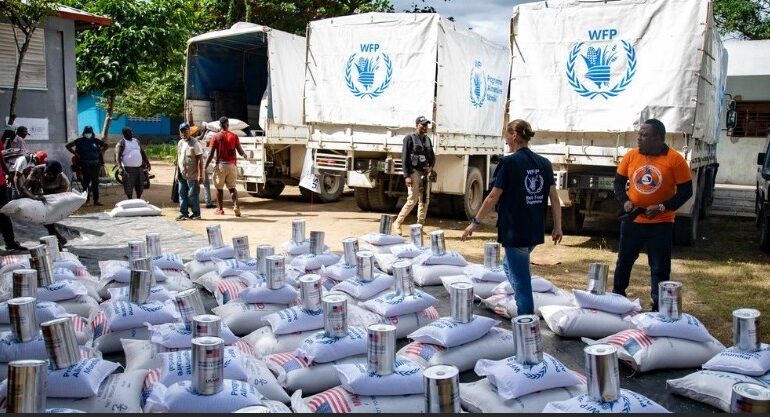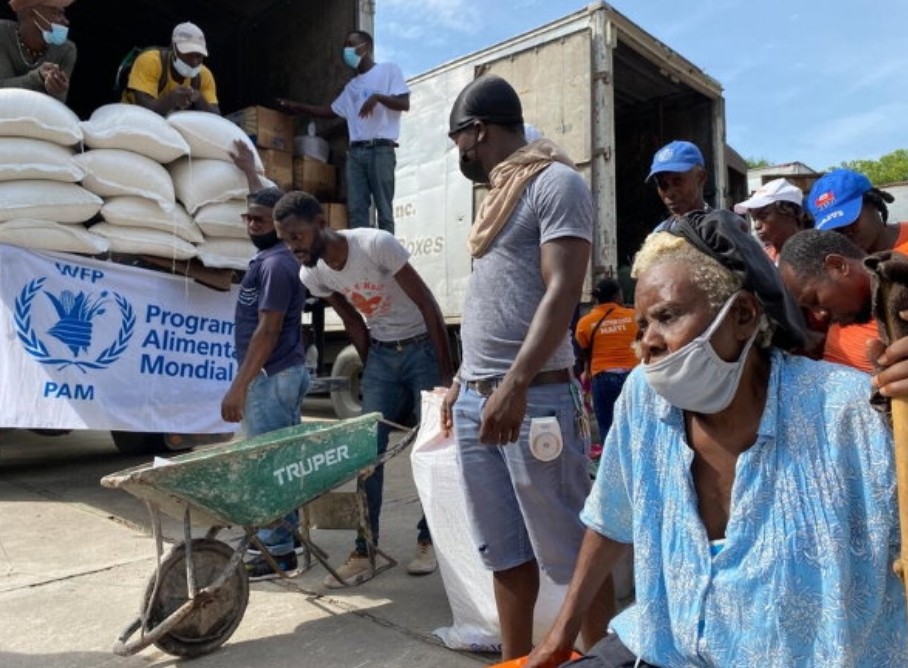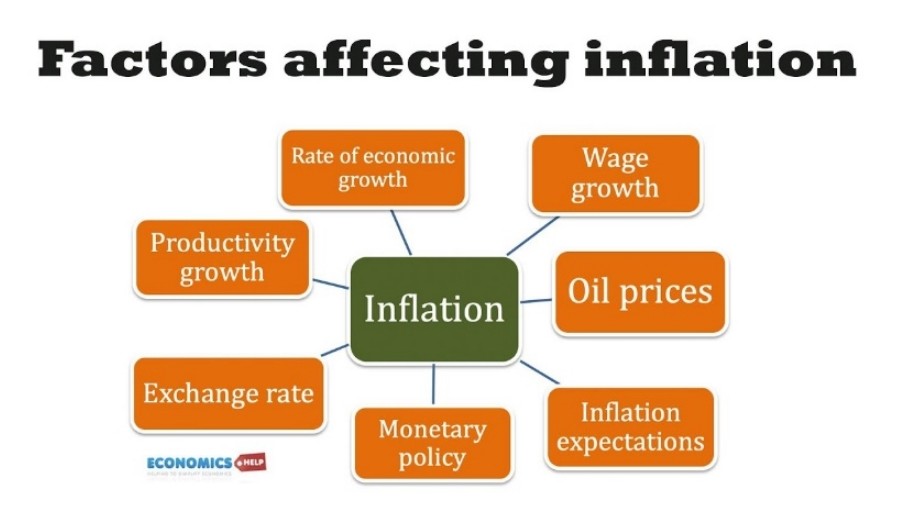
Avellon Williams
PORT AU PRINCE, Haiti – The World Food Program (WFP) said that even though humanitarian assistance has prevented a catastrophe, hunger levels continue to rise in Haiti, with many citizens suffering acutely as a result.
WFP said 4.5 million Haitians are suffering from acute food insecurity, a situation exacerbated by lower-than-expected humanitarian food aid and the ongoing fallout from the last earthquake in August.

The agency asserted, “Hunger levels are rising unabated as persistent political instability, growing inflation, and recurrent disasters continue to conspire against the people of Haiti.”
WFP Country director Pierre Honnorat recently briefed the media in Geneva that the situation is worrisome, “being the worst registered since 2018”.

There is a great deal of hunger. “Haiti forms part of a ‘ring of fire’ encircling the globe where climate shocks, conflict, COVID-19, and rising costs are pushing vulnerable communities over the edge”, he said.
Recent projections indicate that 45 percent of the population will experience severe hunger from March to June, and more than 1.3 million of those will be in the emergency phase of the Integrated Food Security Phase Classification (IPC).
As a result of Haiti’s ongoing economic crisis, the local currency has lost value against the US dollar, inflation has skyrocketed, and fuel prices have increased in the past several months, reducing the purchasing power of many poorer households and making basic needs impossible to afford.

THE EFFECTS OF THE RUSSIA-UKRAINE CONFLICT.
Food prices are at an all-time high, as the Ukraine crisis continues to negatively impact food security. The UN humanitarian in Haiti warned that it would likely continue hurting the vulnerable in Haiti, an island nation extremely dependent on imports.
In light of the fact that 70 percent of goods in Haiti’s stores are imported, Honnorat warned that the food insecurity “situation can only worsen if we don’t support Haiti”.
“This is also fueling insecurity, migration, and sexual exploitation”, he added, calling for more international support. “It’s everything about those coping mechanisms that the population has to go for. Honnorat explains that the workers have to change their diet, they have to reduce their meals, but this can also lead to violence, as well as prostitution.

INFLATION DRIVEN PRICE HIKES
Also, briefing from Port-au-Prince, Patrick David, senior programme manager at the Food and Agriculture Organization (FAO), discussed the impact of the Ukraine crisis on Haiti’s food insecurity.
David noted, “Haiti imports lots of food and fertilizers, and the increase of prices in these products will contribute even more to inflation, which is already high in the country.”
In addition, Honnorat stated, that the wheat that Haiti imports “is mainly coming from Russia and then coming from Canada as well…so if the wheat flour is going up, you will see a problem and the price has already multiplied by five in two years. So, we can only expect that it will multiply again.”

GLIMPSES FOR OPTIMISM
In the south of Haiti, WFP reported an improvement attributed to continued food assistance following last year’s major earthquake.
Over a million people in the affected areas have experienced severe food insecurity in the aftermath of the disaster.
The UN emergency food agency has provided food and cash assistance worth US$ 8.2 million to more than 355,000 beneficiaries.
Yet it warned that the situation has deteriorated in other parts of the south where the emergency response has been limited.
Meanwhile, the northern region is also recovering from heavy flooding in late January, which resulted in deaths and injuries, and forced nearly 3,500 people to seek refuge in temporary shelters.
Over the course of five days, WFP distributed dry rations to 8,000 displaced people, as well as 1,000 ready-to-eat meals to six shelters.

RESPONSES IN CASES OF EMERGENCY
In order to provide long-term solutions for a country facing multiple crises, WFP says it is strengthening national social protection and food systems by utilizing rights-based transfers, income-generation activities, and community-level disaster risk reduction solutions.
The World Food Programme is also running a race against time to refurbish schools in the earthquake-affected areas to speed up the return to school and the resumption of school feeding activities.





Recent Comments